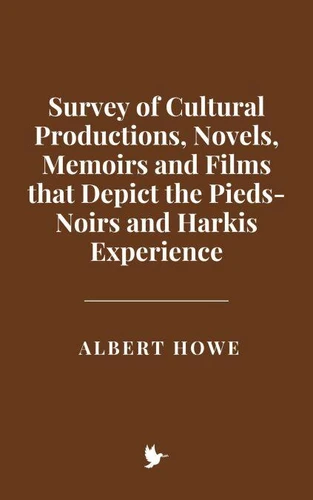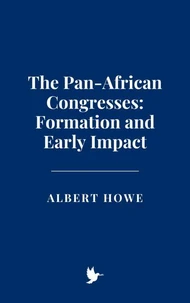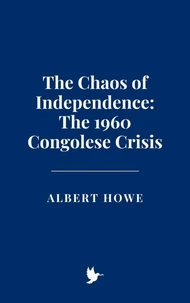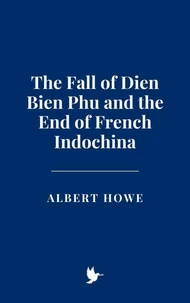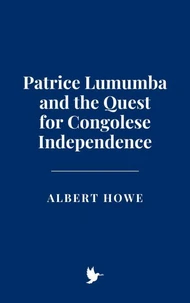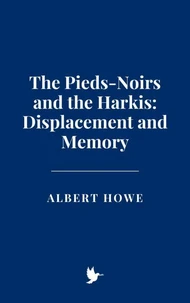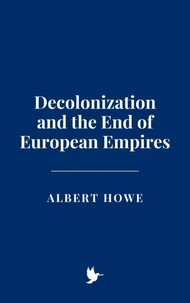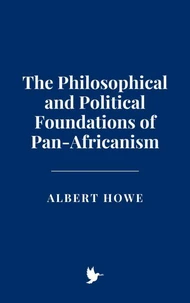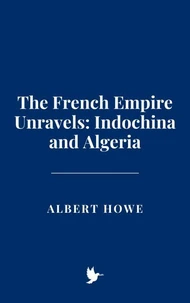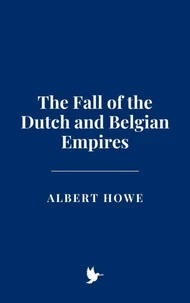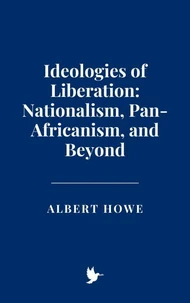Survey of Cultural Productions, Novels, Memoirs and Films that Depict the Pieds - Noirs and Harkis Experience
Par :Formats :
Disponible dans votre compte client Decitre ou Furet du Nord dès validation de votre commande. Le format ePub est :
- Compatible avec une lecture sur My Vivlio (smartphone, tablette, ordinateur)
- Compatible avec une lecture sur liseuses Vivlio
- Pour les liseuses autres que Vivlio, vous devez utiliser le logiciel Adobe Digital Edition. Non compatible avec la lecture sur les liseuses Kindle, Remarkable et Sony
 , qui est-ce ?
, qui est-ce ?Notre partenaire de plateforme de lecture numérique où vous retrouverez l'ensemble de vos ebooks gratuitement
Pour en savoir plus sur nos ebooks, consultez notre aide en ligne ici
- FormatePub
- ISBN8231104680
- EAN9798231104680
- Date de parution05/08/2025
- Protection num.pas de protection
- Infos supplémentairesepub
- ÉditeurWalzone Press
Résumé
Literature, Film, and the Representation of Displacement offers a groundbreaking exploration into one of the most complex and underrepresented chapters of modern history: the forced migration and cultural upheaval of the Pieds-Noirs and Harkis during and after the Algerian War of Independence. Through a masterful survey of novels, memoirs, films, and multimedia works, this book reveals how these narratives have shaped collective memory and public understanding of displacement, trauma, and identity.
From the haunting nostalgia of settler memoirs to the long-silenced testimonies of the Harkis, and from early cinematic portrayals steeped in political tension to innovative hybrid narratives, this volume uncovers the multifaceted ways culture confronts the legacies of colonialism and exile. It navigates the painful terrain of betrayal, loss, and resilience, while also highlighting the evolving voices of subsequent generations striving to reclaim their history and redefine their identity.
Rich in historical context, literary analysis, and cultural theory, this book illuminates the power of storytelling to transform trauma into testimony, silence into dialogue, and fragmented memory into shared understanding. It is essential reading for scholars, students, and anyone fascinated by the intersections of history, culture, and the enduring human quest for belonging. Experience the untold stories that have shaped modern France and Algeria, and discover how literature and film become arenas of memory, identity, and reconciliation in the shadow of displacement.
From the haunting nostalgia of settler memoirs to the long-silenced testimonies of the Harkis, and from early cinematic portrayals steeped in political tension to innovative hybrid narratives, this volume uncovers the multifaceted ways culture confronts the legacies of colonialism and exile. It navigates the painful terrain of betrayal, loss, and resilience, while also highlighting the evolving voices of subsequent generations striving to reclaim their history and redefine their identity.
Rich in historical context, literary analysis, and cultural theory, this book illuminates the power of storytelling to transform trauma into testimony, silence into dialogue, and fragmented memory into shared understanding. It is essential reading for scholars, students, and anyone fascinated by the intersections of history, culture, and the enduring human quest for belonging. Experience the untold stories that have shaped modern France and Algeria, and discover how literature and film become arenas of memory, identity, and reconciliation in the shadow of displacement.
Literature, Film, and the Representation of Displacement offers a groundbreaking exploration into one of the most complex and underrepresented chapters of modern history: the forced migration and cultural upheaval of the Pieds-Noirs and Harkis during and after the Algerian War of Independence. Through a masterful survey of novels, memoirs, films, and multimedia works, this book reveals how these narratives have shaped collective memory and public understanding of displacement, trauma, and identity.
From the haunting nostalgia of settler memoirs to the long-silenced testimonies of the Harkis, and from early cinematic portrayals steeped in political tension to innovative hybrid narratives, this volume uncovers the multifaceted ways culture confronts the legacies of colonialism and exile. It navigates the painful terrain of betrayal, loss, and resilience, while also highlighting the evolving voices of subsequent generations striving to reclaim their history and redefine their identity.
Rich in historical context, literary analysis, and cultural theory, this book illuminates the power of storytelling to transform trauma into testimony, silence into dialogue, and fragmented memory into shared understanding. It is essential reading for scholars, students, and anyone fascinated by the intersections of history, culture, and the enduring human quest for belonging. Experience the untold stories that have shaped modern France and Algeria, and discover how literature and film become arenas of memory, identity, and reconciliation in the shadow of displacement.
From the haunting nostalgia of settler memoirs to the long-silenced testimonies of the Harkis, and from early cinematic portrayals steeped in political tension to innovative hybrid narratives, this volume uncovers the multifaceted ways culture confronts the legacies of colonialism and exile. It navigates the painful terrain of betrayal, loss, and resilience, while also highlighting the evolving voices of subsequent generations striving to reclaim their history and redefine their identity.
Rich in historical context, literary analysis, and cultural theory, this book illuminates the power of storytelling to transform trauma into testimony, silence into dialogue, and fragmented memory into shared understanding. It is essential reading for scholars, students, and anyone fascinated by the intersections of history, culture, and the enduring human quest for belonging. Experience the untold stories that have shaped modern France and Algeria, and discover how literature and film become arenas of memory, identity, and reconciliation in the shadow of displacement.

